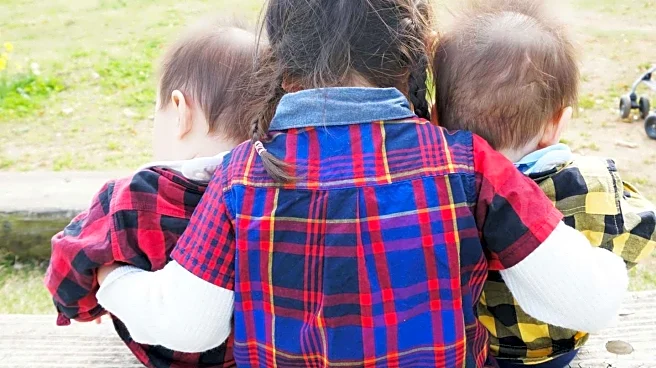What's Happening?
HuffPost examines the unique challenges faced by oldest siblings, as revealed in therapy sessions. According to licensed therapists, oldest siblings often experience perfectionism, imposter syndrome, and parentification due to their upbringing. These individuals are typically tasked with caring for younger siblings and face high expectations from parents, leading to a Type A personality and self-critical tendencies. The article discusses how these experiences manifest in therapy, with oldest siblings often struggling with feelings of inadequacy and difficulty asking for help.
Why It's Important?
Understanding the psychological impact of birth order can help individuals address deep-seated issues related to family dynamics. For oldest siblings, therapy can be a valuable tool for overcoming perfectionism and imposter syndrome, which can affect their personal and professional lives. The insights provided by therapists highlight the importance of addressing these challenges to improve mental health and family relationships. By recognizing the influence of birth order, individuals can work towards healing and developing healthier relationships with family members.
What's Next?
Therapists recommend that oldest siblings engage in therapy to explore and address the challenges associated with their birth order. Therapy can help individuals connect their behaviors to childhood experiences and uncover patterns that need change. Family therapy may also be beneficial for those with strained relationships, providing a space to improve communication and understanding among family members. As awareness of these issues grows, more oldest siblings may seek therapy to address their unique challenges and improve their mental well-being.
Beyond the Headlines
The article highlights the cultural dimensions of parentification, particularly in BIPOC communities where helping younger siblings is often expected. It explores how cultural norms can exacerbate the challenges faced by oldest siblings, leading to feelings of jealousy and resentment towards younger siblings. The discussion of birth order in therapy sessions underscores the need for a nuanced understanding of family dynamics and the role of cultural expectations in shaping individual experiences.










